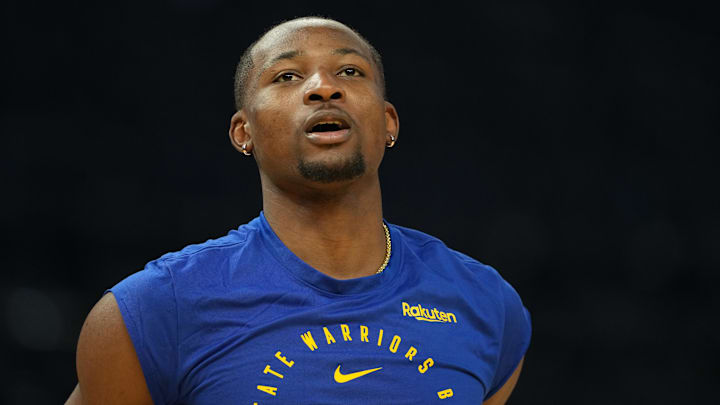After more than two months of negotiation, the Chicago Bulls and forward Josh Giddey agreed to a new contract. The $100 million extension proved to be a middle ground for both sides. Giddey wanted $30 million a year, while the Bulls clearly wanted to pay him closer to 20 million annually.
Meeting in the middle and agreeing to $25 million a season seems like a reasonable solution. After all, he will only be making between 12% and 14% of the cap over those four years.
However, one clear loser of the deal was Jonathan Kuminga of the Golden State Warriors. He is still in negotiations with the Warriors on a new extension, but it appears that there hasn't been any movement in weeks.
With Giddey agreeing to take less than his original demands, Golden State seems perfectly within reason to drag out negotiations until closer to the October 1st restricted free agency deadline.
The Bulls' signing of Giddey proves the Warriors right
By Chicago being willing to drag out Giddey's restricted free agency, they saved $20 million. Not bad. And if he plays like he did during the second half of last season, that contract looks perfectly reasonable.
That move should only embolden Golden State, but only so much. The Warriors are trying to convince Kuminga to agree to a two-year, $45 million contract that will pay him $22.5 million per season.
Compare that to him wanting $30 million annually, and it's clear to see why negotiations have dragged on for two months. To his credit, he appears willing to take a two-year deal, but only with the second year being a player option. That appears to be the major hang-up.
After all, by agreeing to a two-year deal without a player option, it gives Golden State the ability to trade him to any team next season. He obviously wants to have a say in where he plays next since continuing his career with the Warriors long-term appears to be a fantasy.
The Golden State Warriors aren't keeping Jonathan Kuminga long-term
By signing a deal with a player option in the second year, if he had a bad year, he could simply opt in. That would give him another chance to raise his value with another season.
Of course, if he has a great year, then he could opt out and cash in in free agency when there will be far more money to go around. After all, more teams would have significant cap space to sign him.
He also wouldn't have to worry about restricted free agency because he would be an unrestricted free agent after next season in that scenario. Golden State doesn't want that to happen since that would almost certainly mean they'd be losing him for nothing.
However, Kuminga can sign his qualifying offer, which would put him on a one-year $7.9 million contract, giving him both a no-trade clause and allowing him to hit unrestricted free agency anyways. The longer negotiations go on, the more likely Kuminga is to take the qualifying offer.
Nevertheless, the Warriors playing hardball could potentially result in Kuminga caving and taking $37 million more in guaranteed money. That would give them leverage and the ability to trade him, making them justified to play the Kuminga situation out and see if it works out in their favor.
